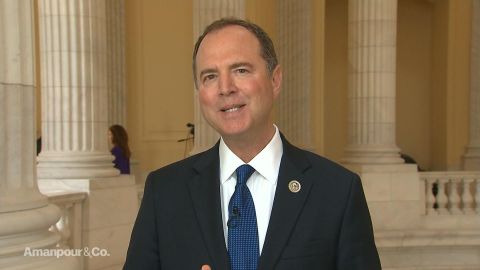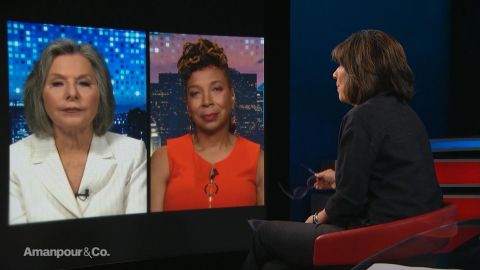Read Transcript EXPAND
KIMBERLÉ CRENSHAW, ADVISER TO ANITA HILL’S LEGAL TEAM: This apology that we’ve heard, I call it a bystander apology. It’s in passive voice. “I regret what happened to you. It was a terrible thing, what happened.” What Biden needs to say is, what role he played in making those things happen and what he will do to actually show accountability. So, he’s got — he’s getting a little closer. Every time he says something, he’s coming closer, but it’s sort of an apology by testing the temperature, “is this enough, is this enough?” And so far, it’s not enough.
CHRISTIANE AMANPOUR: Alright. Well, testing the temperature is really an important issue here because it plays into not only the issues that you were just rightly bringing up but also, the difference between that time and this time and the — certainly, the different political, you know, issues right now and the climate. We’re joined now also by Barbara Boxer, she’s a former Democratic senator who ran for office in response to the treatment of Anita Hill.
Senator Boxer, you were one of our — the first sort of big group, not that big at the time, but nonetheless, significant group of women to get into politics and get into the Senate because of the Anita Hill travesty of justice, basically, is how it’s been portrayed and how people believe it is now. What do you make of vice president’s apology and the answer to, you know, Kimberlé’s ongoing complaints about it being insufficient?
BARBARA BOXER, FORMER U.S. SENATOR: Well, as one of the House women who marched over demanding that Professor Hill be heard, I want you to understand that she is one of my heroes and, without her, I never would have gotten elected. That is a fact. Having said all that, and I respect her, whatever decision she makes about Joe is her decision, and I will support whatever decision she makes. I personally have forgiven Joe, and I wanted to explain why. Number one, if you remember back then, the hearings had been shut down, and they were over. So, for Joe to be able to even get agreement to reopen them, I’m sure there was some back and forth, who’s going to go first, who’s going to go second. I know this happens because I was a committee chairman for many years, and I once got ahead of my committee on a toxic waste bill and it was too environmentally sound for them and I had to really make some decisions I didn’t want to make. So, that’s number one.
Number two, what did he do after? What did he do? He went to Carol Moseley Braun, a newly elected senator, and he said, “Please — ” and woman of color, African-American, great lawyer, “– will you come on the Judiciary Committee.” He asked me if I wanted to go on environment committee. He went to Diane. So right away, we had two women on the committee. He worked his heart out to get the violence against women law passed. And I don’t want to overstate or understate how important that was. It was so important, and he had a civil rights remedy in that bill. Unfortunately, it was thrown out by Rehnquist later, but it really gave women a civil right if they were harassed.
About This Episode EXPAND
Christiane Amanpour speaks with Rep. Adam Schiff about AG William Barr; and Barbara Boxer & Kimberlé Crenshaw presidential candidate Joe Biden. Michel Martin speaks with Michael Bennett about the intersection of race and football.
LEARN MORE


